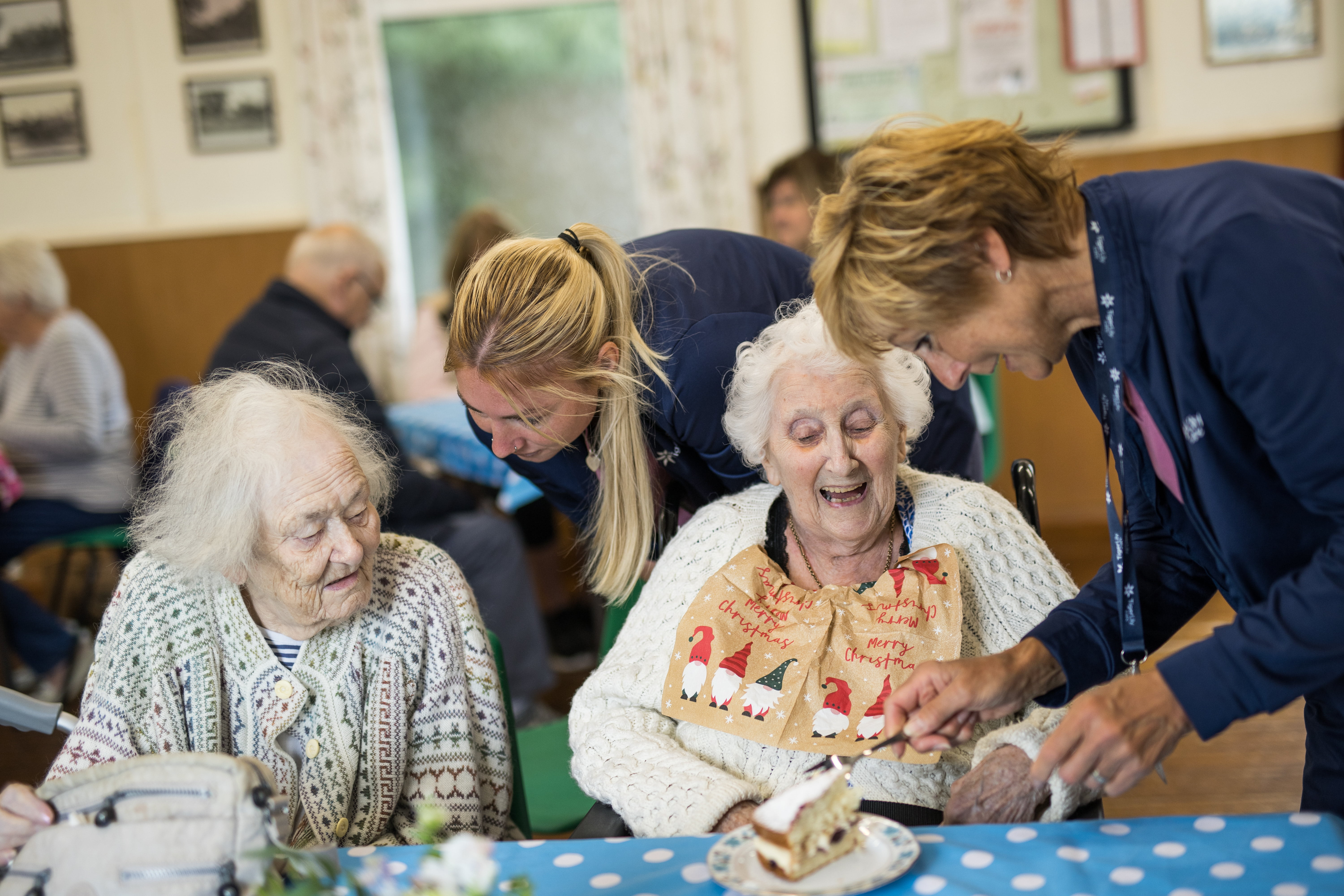It’s not unusual for older adults to eat less as they age, but when appetite loss becomes persistent, it can affect overall health and quality of life. Reduced food intake increases the risk of malnutrition, muscle loss, immune system decline, and slower recovery from illness or injury.
For carers and family members, recognising the early signs of appetite loss and knowing how to respond is essential. This guide explores the common causes of appetite loss in the elderly, offers practical solutions to encourage eating, and provides tips for ensuring nutritional needs are met, even when food is less appealing.
Why Appetite Changes with Age:
Ageing affects every system in the body, including those that control hunger and digestion.
Several physiological changes can contribute to reduced appetite:
- Slower metabolism: Older adults require fewer calories, which can naturally reduce feelings of hunger.
- Changes in taste and smell: Sensitivity to flavours decreases with age, making food less enjoyable.
- Dental issues: Poor-fitting dentures, missing teeth, or oral pain can make eating uncomfortable.
- Digestive changes: Reduced saliva production, slower digestion, or gastrointestinal conditions can impact appetite.
While some appetite change is normal, significant or sudden loss of interest in food can signal an underlying health problem.
Medical Causes of Appetite Loss:
Many health conditions and medications can suppress appetite in older adults.
Common medical contributors include:
- Chronic illnesses: Heart disease, COPD, kidney disease, and cancer can affect appetite and energy levels.
- Depression and anxiety: Mental health conditions often reduce motivation to eat.
- Dementia: Memory loss may cause people to forget to eat or lose interest in food.
- Thyroid disorders: Overactive or underactive thyroid can disrupt metabolism and hunger signals.
- Infections: Urinary tract infections or pneumonia can cause temporary appetite loss.
Medications such as antibiotics, chemotherapy drugs, and certain painkillers may cause nausea, taste changes, or dry mouth, making food less appealing.
If appetite loss is sudden, persistent, or accompanied by weight loss, a medical evaluation is essential to rule out treatable causes.
Emotional and Social Factors
Eating is about more than just nutrition; it’s also a social and emotional experience. Loneliness, grief, or a lack of companionship can significantly reduce interest in meals.
Emotional and social reasons for appetite loss include:
- Eating alone most or all the time.
- Loss of a partner or close friend.
- Changes in living arrangements or routines.
- Low mood or depression.
For many older adults, shared meals are one of the highlights of the day. Without that connection, eating can feel like a chore.
Recognising the Signs of Poor Nutrition
Carers should watch for physical and behavioural signs that an older adult isn’t eating enough. You don’t need to be a medical expert to identify the signs of poor nutrition.
Warning signs include:
- Noticeable weight loss or loose-fitting clothes.
- Weakness, fatigue, or reduced mobility.
- Dry skin or hair loss.
- Recurrent infections or slow-healing wounds
- Irritability or confusion.
Tracking food intake over a week can help identify patterns and highlight if nutritional needs are being met. Discuss your findings with your loved one’s healthcare provider to identify any action that needs to take place.
Practical Strategies to Stimulate Appetite
Encouraging someone to eat more can be challenging, but small changes in approach and environment can make a big difference.
Carer tips to boost appetite:
- Create a pleasant mealtime setting: Use natural light, play soft music, and set the table attractively.
- Serve smaller, more frequent meals: Large portions can be overwhelming; several mini meals may be more appealing.
- Offer favourite foods: Even if they’re not the healthiest, including some favourites can spark interest in eating.
- Enhance flavour and aroma: Use herbs, spices, and natural seasonings to make meals more appetising.
- Involve the person in food choices: Even choosing between two options can increase engagement.
For those with reduced sense of smell or taste, stronger seasonings or varying textures can help maintain interest in food. Explore food preferences with your loved one to identify what is or isn’t likely to work for them.
Nutrient-Dense Foods for Small Appetites
When someone is eating less, every bite counts. The focus should be on foods that are rich in essential nutrients without requiring large portions.
High-nutrient food ideas:
- Eggs (boiled, scrambled, or in omelettes)
- Greek yogurt with fruit and honey
- Smoothies with milk, nut butter, and banana
- Soft fish, like salmon or trout
- Avocado on wholegrain toast
- Nut and seed mixes
- Soups made with beans, lentils, or chicken
Adding powdered milk to soups, porridge, or mashed potatoes is an easy way to increase protein and calories. Your healthcare provider can provide further guidance on creating nutritious meals and assessing the suitability of introducing meal supplementation.
Supporting Hydration Alongside Nutrition
Older adults may have a reduced sense of thirst, and dehydration can further suppress appetite. Encouraging fluids throughout the day supports digestion, helps prevent constipation, and can make eating more enjoyable.
Hydration tips:
- Offer water, herbal teas, or diluted fruit juices regularly.
- Include hydrating foods like melon, cucumber, or broth-based soups.
- Avoid excessive caffeine, which can cause dehydration.
If drinking large amounts of fluid is difficult, offer small sips frequently rather than large glasses all at once. Don’t underestimate the power of social connection; grab a drink alongside your loved one regularly to encourage adequate hydration.
Meal Planning and Preparation Support
Appetite loss can be compounded by difficulty shopping for or preparing meals. Providing support in these areas ensures that nutritious, appealing food is always available.
Ways to help include:
- Preparing ready-to-eat portions in advance.
- Stocking the fridge with healthy snacks.
- Using frozen vegetables and pre-cooked proteins to save effort.
- Sharing meal preparation tasks to make it more enjoyable.
- Arranging meal delivery services if shopping is a barrier.
Meal planning with the older adult ensures food matches their tastes, making them more likely to eat. Supporting your loved one to make independent choices also promotes their autonomy and overall mental well-being.
Medical and Professional Interventions
If home strategies aren’t enough, healthcare professionals can offer additional support. A professional home care provider can give you the expert advice and guidance needed to support your loved one.
Options include:
- Referral to a dietitian for tailored meal plans.
- Review of medications to identify appetite-reducing side effects.
- Prescription nutritional supplements or shakes.
- Appetite-stimulating medication (in select cases).
Regular health checks and weight monitoring help catch nutrition issues before they cause serious health decline.
Encourage Social Eating
Shared meals often improve appetite and overall enjoyment of food.
Ideas for increasing social eating:
- Organise family or friend lunches.
- Join community lunch clubs or day centres.
- Arrange video calls during meals for remote companionship.
- Plan themed dinners or simple celebrations.
For housebound individuals, inviting neighbours or using volunteer visitor programmes can help create those valuable shared mealtime moments.
Supporting Mental Well-being
Addressing underlying emotional health can directly improve appetite. Loss of appetite is one of the earliest signs of depression that you can act on.
Strategies to support mental health include:
- Encourage gentle physical activity, which can boost mood and hunger.
- Support hobbies and interests to maintain engagement with life.
- Promote regular social interaction.
- Seek professional help if signs of depression persist.
Well-being is closely linked to nutrition, improving one often benefits the other. Your GP can provide you with more information about spotting the signs of depression early.
When Appetite Loss Signals a Serious Problem
Sometimes, appetite loss is an early warning sign of a serious medical issue such as cancer, advanced heart failure, or severe depression.
Seek urgent medical advice if appetite loss is accompanied by:
- Rapid, unexplained weight loss
- Severe fatigue or weakness
- Difficulty swallowing
- Persistent nausea or vomiting
- Signs of dehydration or confusion
It’s always better to be safe than sorry. A healthcare professional will always be happy to examine your loved one and provide the reassurances that you need.
In Summary
Appetite loss in older adults is common but not something to ignore. The impact on health, independence, and recovery from illness can be significant, but with the right approach, many cases can be managed successfully at home.
By identifying the underlying causes, creating pleasant mealtime experiences, focusing on nutrient-dense foods, and providing emotional and social support, carers can make a real difference. Regular medical check-ins ensure any serious issues are addressed promptly.
What now? This week, track food and fluid intake for your loved one. Look for patterns, preferences, and missed opportunities to encourage eating, and introduce one or two small changes to make meals more appealing.
Sample 7-Day Meal Plan for Small Appetites
This plan focuses on nutrient-dense, easy-to-eat foods served in smaller, frequent portions to support energy and nutrition.
Day 1
- Breakfast: Greek yogurt with honey and soft berries
- Snack: Banana smoothie with milk and nut butter
- Lunch: Creamy vegetable soup with wholegrain toast
- Snack: Cheese cubes with grapes
- Dinner: Soft baked salmon with mashed sweet potato and spinach
Day 2
- Breakfast: Scrambled eggs with avocado on toast
- Snack: Fortified milkshake
- Lunch: Lentil soup with a small bread roll
- Snack: Rice pudding with cinnamon
- Dinner: Chicken casserole with carrots and peas
Day 3
- Breakfast: Porridge with dried fruit and extra milk powder
- Snack: Peanut butter on crackers
- Lunch: Tuna mayo sandwich on soft wholemeal bread
- Snack: Yogurt drink
- Dinner: Shepherd’s pie with soft vegetables
Day 4
- Breakfast: Soft cheese and tomato on toast
- Snack: Custard pot
- Lunch: Creamy mushroom soup with oatcakes
- Snack: Fruit smoothie
- Dinner: Baked cod with mashed potatoes and green beans
Day 5
- Breakfast: Omelette with cheese and soft vegetables
- Snack: Greek yogurt with mashed banana
- Lunch: Soft beef stew with root vegetables
- Snack: Milkshake or fortified drink
- Dinner: Pasta with creamy tomato sauce and grated cheese
Day 6
- Breakfast: Warm semolina with stewed fruit
- Snack: Nut and seed mix
- Lunch: Soft fish pie with peas
- Snack: Rice pudding
- Dinner: Chicken and vegetable risotto
Day 7
- Breakfast: Pancakes with soft fruit and yogurt
- Snack: Fruit smoothie
- Lunch: Tomato and lentil soup with bread
- Snack: Cheese and crackers
- Dinner: Cottage pie with soft carrots








